FAQ’S
Why do I need a wine cellar and what are the ideal conditions for storing wine?
A: If you love wine and want to collect and age it, then a wine cellar or conditioned wine cabinet is a necessity. Wine is alive and it responds to its environment. In fact, a wine’s surroundings will determine its ideal maturity date and will also impact its character when it is consumed.
There are three key elements that need to be controlled to protect your wine for extended periods of time. These elements are temperature, humidity, and light.
1) Temperature: An important long-term storage factor. Temperature levels in a wine cellar must be cool and constant. The generally accepted proper wine storage temperature for storing wine is approximately 15° Celsius.
2) Humidity: For long-term wine storage, a relative humidity of about 65% is ideal, however, a range between 60% and 80% is acceptable. Wine is stored on its side so that the wine is always in contact with the cork, keeping the cork wet. Humidity levels in a wine cellar are not a factor for bottles that are hermetically sealed with mechanisms like a screw top.
With corked bottles, low humidity levels will dry the airside of the cork, allowing for air leakage or capillary pull action of the wine toward the dry side of the cork. This allows oxygen to come in contact with the wine, promoting aging. High humidity levels will not harm the wine. In fact, to a true oenophile, mouldy wine bottles may be an indication that the wine has been stored properly for long periods of time. Cardboard boxes will not survive in cellars with high humidity levels and should therefore be removed from the cellar. These boxes will become soggy and structurally unsound, thus putting your wine at risk. High humidity can potentially damage the wine labels.
3) Light: Ultraviolet light causes premature aging of wines. Ultraviolet light breaks down some of the complex components in wine and may even produce unpleasant aromas. Sparkling wines are the most sensitive to light and should be stored in the darkest part of your cellar. Cellars should only be lit during periods of use and fluorescent light sources should be substituted by either low ambient incandescent or LED sources. Infrequent light exposure will not have a negative impact on your wine collection.
What is the benefit of having a customised wine cellar or storage unit?
A truly customised wine cellar & racking system will gain the most out of storage, aesthetics, conditions & variety of racking creating a unique space for each cellar.
What are the construction specifications for a conditioned wine cellar?
A: The wine cellar must be properly constructed to promote proper wine storage conditions and energy efficiency, also to prevent potential damage to your home or building from potential condensation issues.
Insulation:
We recommend all wall, floors and ceilings of the wine cellar must be insulated properly with approved materials. Glazing to be double glazed with argon filled cavities.
Cellar Door: An exterior grade insulated door with complete weather stripping and double insulated glass is a must to ensure the proper temperature and humidity levels of your wine room are sealed within the space and efficiently maintained.
Do I need a large space for a wine cellar?
No, not at all. Wine cellars can be as small or as large as you want. Cellars are not dictated to be a room they can be a cabinet or cupboard. We can build cellars into an unused cupboard, space in a butler’s pantry, under stairs, nook or corner of a living room.
Are concrete walls acceptable for a wine cellar?
A: If your cellar is a passive one without a cooling system then you can use your concrete walls. However, if you are using an active cooling system you should insulate.
How should a wine bottle be stored?
A: Corked wine bottles should be stored on its side, keeping the wine in constant contact with the cork. A moist cork remains swollen, preventing air from reaching the wine. This reduces the risk of premature aging through oxidation, which occurs when oxygen reaches the wine, turning it to vinegar.
How should I store screw-capped wine bottles?
A: There’s no advantage to storing them horizontally as you should with corked sealed wine bottles.
Can white wine and champagne be stored in the same cellar with reds?
A: Yes! The ideal storage conditions are similar for white and red wines.
How long can wine be stored?
A: In general, red wines are aging wines and whites are drinking wines. Actual maturation times for red wines depend on the type of wine and its complexity, quality, and vintage. Tannins, which come from the grape stems and skins, are the backbone of the aging process. Tannins produce a sharp, bitter taste, which over time will precipitate out of the wine allowing the other characteristics of the wine to come forth.
When stored properly, complex red wines can be stored for decades or even centuries because they usually have a higher tannin content.
Does wine need to be turned periodically to prevent the cork from drying out?
A: No, wines stored on their sides in a properly conditioned space do not require turning.
Can I turn an existing room into a wine cellar?
Yes, a cellar can be built almost anywhere in the home as long as:
- It is built to specification including correct insulation, glazing, lighting and so forth.
- It incorporates climate control equipment installed according to the manufacturer’s specifications.
Is climate controlling my cellar really necessary?
The short answer to this is “YES” – If you want it to perform its crucial role of protecting your wine collection that is.
Climate Control:
A wine cellar climate control system turns almost any space into a custom cellar by recreating the essential conditions required to mature your wine perfectly. Wine needs to be stored at the same consistent temperature of 12-14ᵒC, and a humidity level of 55% to 75%. Many people overlook the need for a cellar conditioner, however vast changes in temperature can be very detrimental to your wine collection. Selecting the correct climate control system will depend on the size of your cellar, its heat load, its location, and the space available to install the unit and ducting appropriately.
Ducting:
Each climate control system has different requirements for ducting. A through the wall unit and some ducted systems needs ducting which leads to outside or a well-ventilated space that is at least three times greater than the cellar. A split system needs a little ducting close to cellar but then uses refrigerant piping to connect to condenser positioned elsewhere in the home or outside.
Can I use glass walls & doors for a cellar?
You can absolutely build a cellar with glass walls or door but if you want it to maintain the essential environmental conditions to cellar your wine properly, there are some guidelines that you must consider upfront in the planning stages to ensure the effective operation of your cellar.
- Any glass walls or doors MUST be double glazed with argon filled cavities and an energy or UV coating.
- Any glass walls or doors will elevate the heat load in the cellar. The more glass used the higher the heat load and the harder the cellar conditioner needs to work. This will need to consider when deciding which climate control system is most suitable for you cellar.
- Other surfaces in the cellar (walls, doors, floors) must be insulated properly
We partner with leading architects, builders and developers as well as working with homeowners providing cellar design expertise.
What makes a good cellar?
From a functional perspective, a good cellar must deliver the following five essential environmental conditions:
- Consistent, low temperature
- High humidity (55-75% ideal)
- Fresh airflow
- Minimal vibration
- Heat and UV free lighting
Most importantly a good cellar is what is best suited to your needs i.e. meets your storage requirements, aesthetics, functionality to your space.
How do I select the right racking?
The best racking solution depends on your priorities. Here is a checklist of some things you should consider:
- Do you want to maximise capacity with bulk storage or create a space where you can display your precious bottles?
- Are you looking for a functional space to cellar your bottles or somewhere you can linger or entertain guests?
- What sort of aesthetic are you looking to achieve? Do you prefer a modern look or a more traditional style cellar?
Do you have any ½ bottles, magnums, or particularly wide girth bottles such as French champagne in your wine collection that you need to provide space for?


